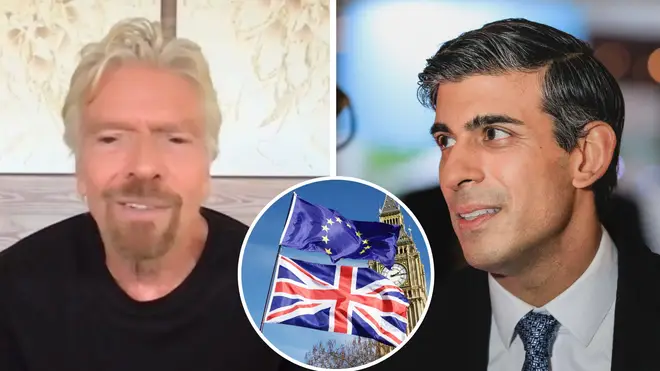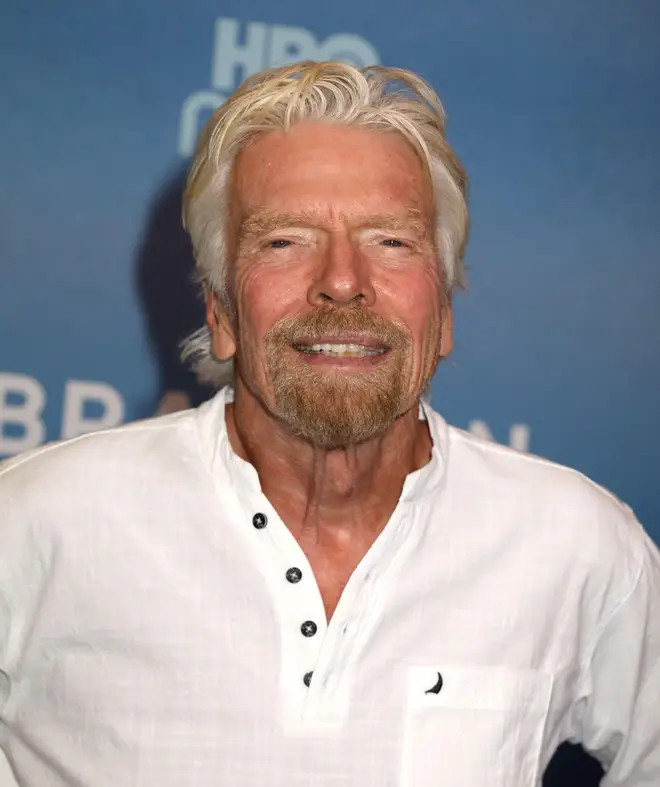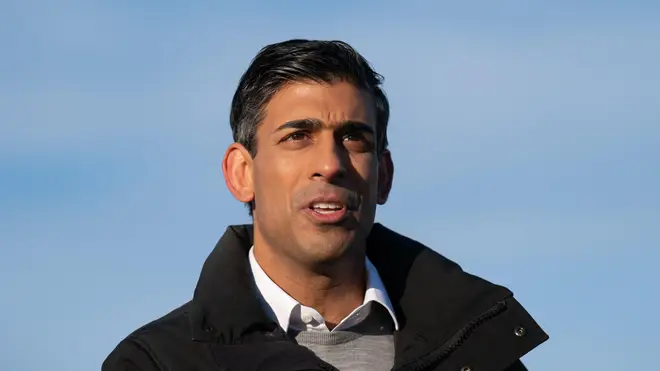
Vanessa Feltz 3pm - 6pm
13 December 2022, 14:12 | Updated: 13 December 2022, 17:33

Sir Richard Branson has blamed growing post-Brexit red tape for Britain's poor economic growth, saying he wouldn't "invest new money" in the country with the way things are at present.
Speaking to LBC's Tom Swarbrick in a discussion on innovation and changing the world for the better, billionaire Virgin boss Sir Richard said he would opt to invest in the USA over Britain.
"As far as new money's concerned, we would not necessarily invest new money in Britain at the moment," he said.
"I've made it no secret of my views on Brexit both before and after Britain's referendum and I think what the government needs to do is to urgently seek a mutually beneficially relationship with the EU – it's the world's largest trading bloc - it needs to be at least similar to the deal Switzerland has.
"For the people of Britain and companies in Britain to flourish, Britain needs to reduce its trade barriers and reduce its red tape."

Sir Richard Branson gives his take on Brexit
Sir Richard, whose life and philanthropic work is currently being chronicled in the four-part HBO docu-series BRANSON, added: "I'm afraid Brexit's costing Britain something like 2% GDP per year – when you compound that onto the other problems that Britain currently has it's devastating and it has resulted in Britain becoming the poorest country as far as growth is concerned - almost in the world. It really is sad to see."
Read more: Valentine's Day Brexit deal back on the table as Rishi Sunak seeks new opt-outs on Northern Ireland
Read more: 'Your point is ridiculous': LBC's Lewis Goodall challenges think-tank Director's stance on Brexit
Sir Richard who is supporting thousands of UK start-ups has also spoken about the financial challenges faced by the Virgin Group during the Covid-19 pandemic. In his updated autobiography Finding My Virginity, he describes the obstacles he faced during the crisis. He said he hopes his comments will "inspire readers to dream big and change the world."

Recent figures from the Office for National Statistics (ONS) revealed a rebound in October, but experts warned the bigger picture is still one of a shrinking economy amid the cost-of-living crisis, with the UK set to suffer a prolonged recession.
The ONS said this is reflected in the less volatile data over the three months to October, which saw the economy drop by 0.3% compared with the previous three months.
Chancellor Jeremy Hunt said: "While today's figures show some growth, I want to be honest that there is a tough road ahead.
"Like the rest of Europe, we are not immune from the aftershocks of Covid-19, Putin's war and high global gas prices."
The Bank of England is still facing increased inflation rates too, which is continuing to weigh on growth.

Rishi Sunak has put the new Northern Ireland bill on ice until the new year in an attempt to foster goodwill with Brussels.
However, Foreign Secretary James Cleverly said the government is continuing to negotiate with the EU over Northern Ireland's post-Brexit trade arrangements.
In the Commons on Tuesday, Labour former minister Hilary Benn said: "We... read that the Northern Ireland Protocol Bill is on ice while the negotiations continue. Can the Foreign Secretary assure the House that if an agreement with the EU is reached, and we all hope it will happen, that the Northern Ireland Protocol Bill will be dropped?
Mr Cleverly replied: "The Northern Ireland Protocol Bill exists for a reason.
"The commitment that I made to Maros Sefcovic and the conversations that I had with him and with others is that we would not either artificially accelerate that process or artificially hinder or retard that process.
"We have always said that our preferred option is through negotiations. We speak regularly, the tone is positive and I think that there is now an understanding that the concerns that we have raised and have been raised particularly by the unionist community in Northern Ireland are not confected, that they are real and that any agreement would need to address them."